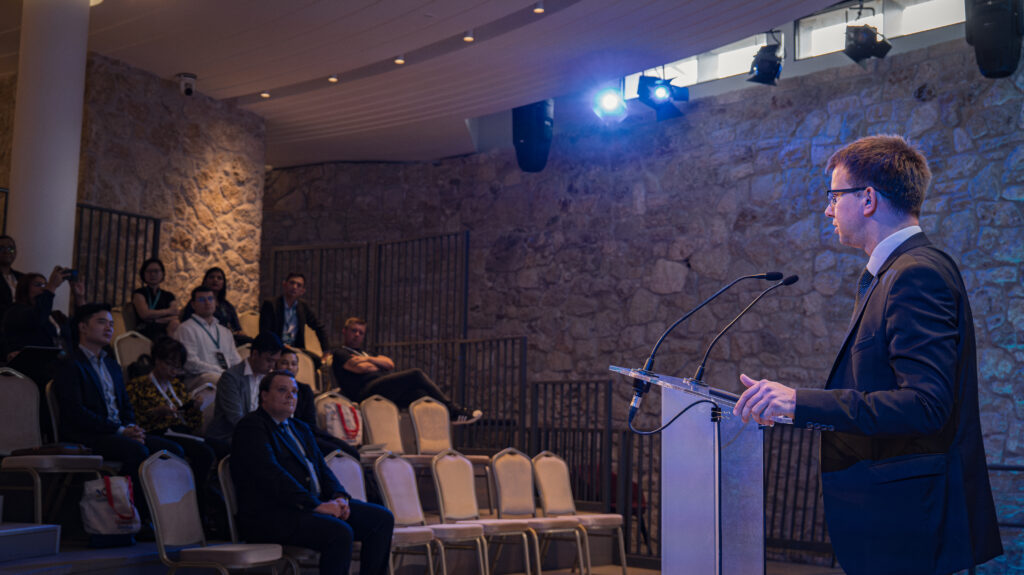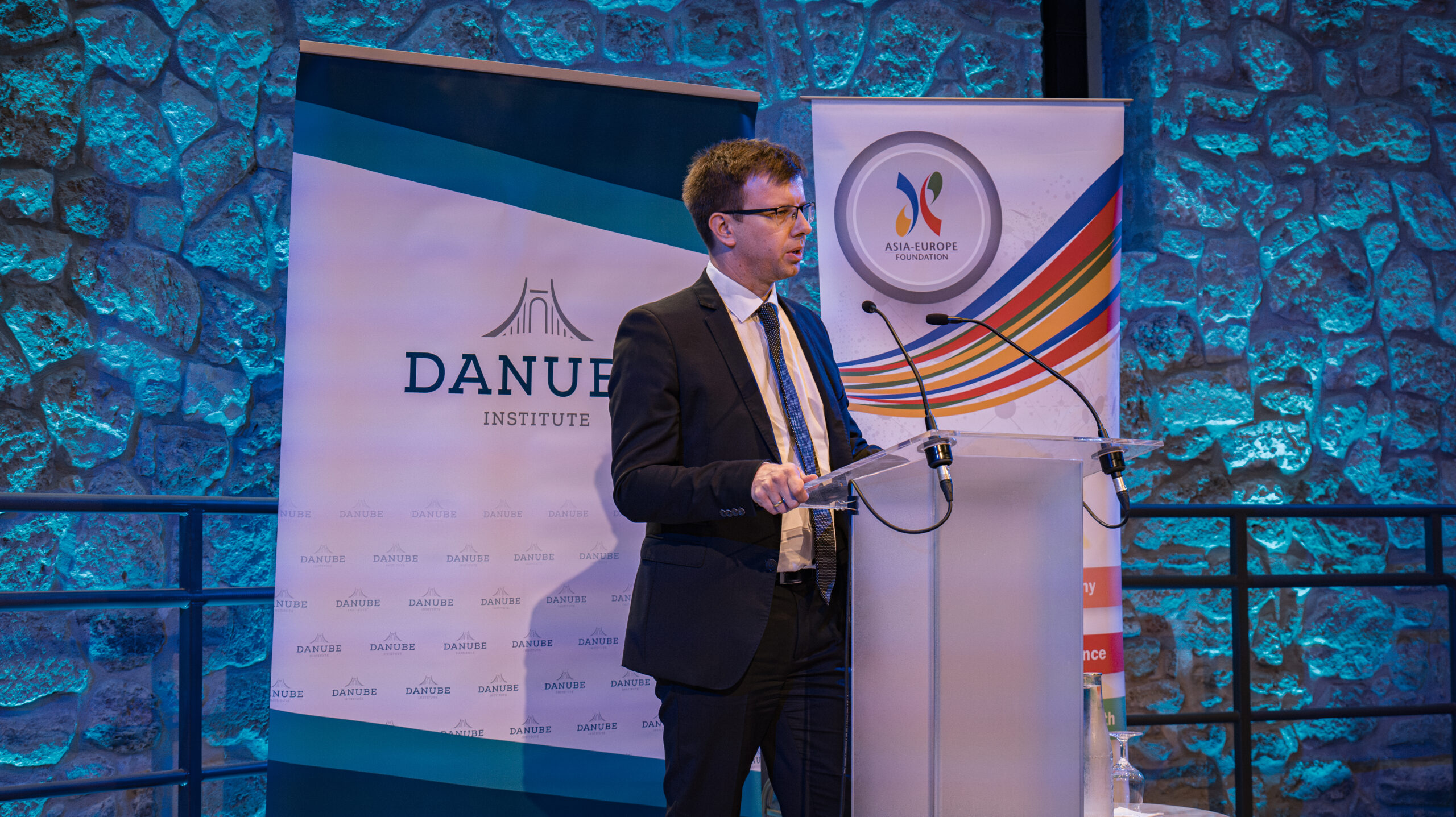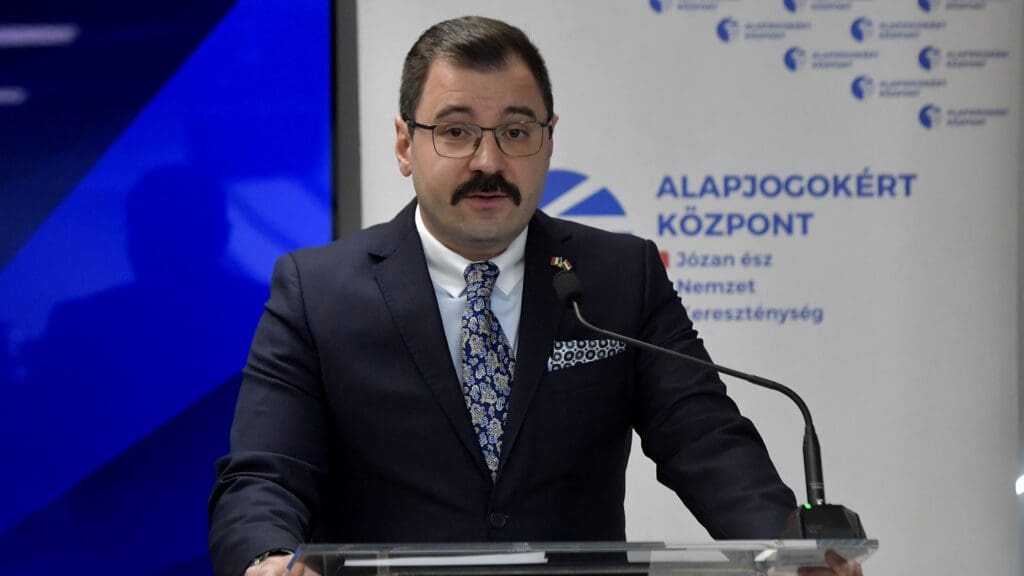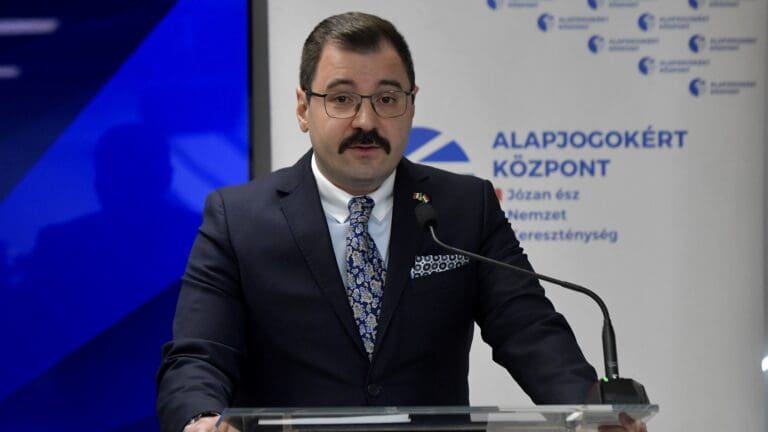Hungarian EU Affairs Minister János Bóka closed the first day of the international media seminar jointly organized by Hungarian think tank Danube Institute and the Singapore-based intergovernmental organization Asia–Europe Foundation (ASEF) on Tuesday. Although the seminar’s main focus is on the relationship between artificial intelligence and journalism, the event—as Danube Institute Executive Director István Kiss noted in his opening remarks—was held under the auspices of the Hungarian EU Presidency. Bóka’s presentation, therefore, centred on this topic.
At the beginning of his speech the EU affairs minister recalled that this is not the first time Hungary has taken on a crucial role in the functioning of the EU, having previously assumed the rotating presidency in 2011. He noted that during that time the Hungarian government had to confront serious international challenges, such as the Fukushima disaster and the Arab Spring. However, Bóka emphasized, the current circumstances are far more difficult. But since many politicians, including Prime Minister Viktor Orbán, were already in office during Hungary’s first presidency, their experience will be invaluable in addressing the current challenges.
Bóka then discussed the Hungarian presidency’s programme, explaining that while drafting it, they focused on areas where European citizens wanted to see changes, as well as the scope and quality of those adjustments. He noted that despite many EU citizens voting for a change in the European elections back in June, this was not reflected at the institutional level: the President of the European Commission remained the same, leadership positions stayed with the same parties, and the approach to challenges did not shift—despite voters’ clear choices. Therefore, they aimed to incorporate these necessary changes into the programme. ‘We also conducted extensive consultations with member states. I personally held more than two hundred discussions with stakeholders during the process of creating the programme for the Hungarian presidency,’ Bóka added.

Speaking about the programme, EU Affairs Minister János Bóka stated that the Hungarian government believes each presidency should have a core message around which it builds its top priorities. ‘It was very clear from the outset that this core message would be the competitiveness of the European Union,’ Bóka explained. He noted that the Hungarian government had long recognized the importance of competitiveness, discussing it even before it became ‘sexy.’ ‘Now, it is sexy,’ he said, pointing to the recent speech by European Commission President Ursula von der Leyen to the European Parliament, where competitiveness was the central theme. However, just six months ago, it was barely mentioned, with the focus being on the green transition and the new migration pact. Bóka underscored that one of the early successes of the Hungarian presidency was bringing competitiveness to the forefront of EU discussions.
The presentation also touched on the war in Ukraine and the EU’s response to it. Bóka noted that the conflict not only underscored the importance of European strategic autonomy but also revealed that Europe, and the EU, cannot defend itself independently. The European defence industry is unable to meet the continent’s defence needs. In this context, he highlighted two radically different positions.
‘It was very clear from the outset that this core message would be the competitiveness of the European Union’
One perspective holds that supporting Ukraine’s defence ambitions is Europe’s primary interest, arguing that EU security can be achieved through backing Ukraine. The other viewpoint suggests that European security and defence policy should prioritize Europe’s strategic interests, with the European defence industry serving European needs—placing military support for Ukraine as a secondary concern. This divergence leads to a critical question: do we want a European defence industry or a transatlantic one? Bóka stressed that these two approaches are fundamentally different.
Bóka highlighted that the priorities of the Hungarian Presidency include both widely agreed-upon issues and those subject to significant political debate. Among the consensual topics are the external aspects of migration, such as cooperation with origin countries, addressing the root causes of migration, and protecting the nations and borders of the European Union. On the more contentious side, Bóka highlighted the future of European cohesion policy and the further enlargement of the Union as key areas of ongoing political discussion.
He stated that these priorities should be translated into concrete actions and initiatives, while also managing the processes inherited from the previous presidencies. Additionally, the presidency must ensure a smooth setup of the new parliament and commission, facilitating the institutional transition.
Related articles:








